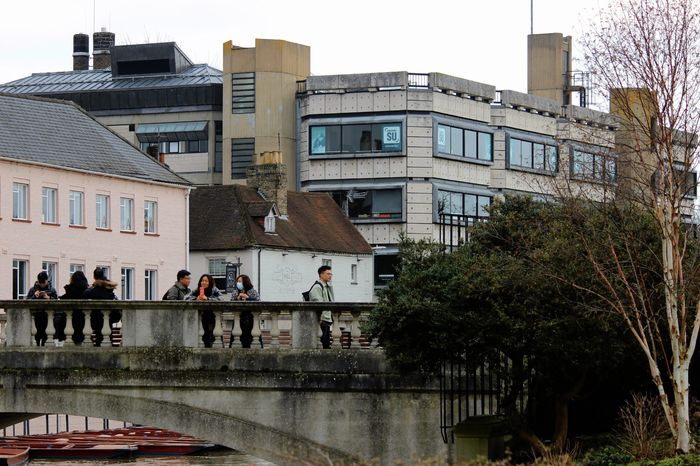SU slashes sabbs
The Students’ Union’s women’s, disabilities, and BME sabbatical roles have been scrapped as of next year

The Cambridge Student’s Union (SU) has abolished six of its sabbatical officer roles in a major shakeup of the institution’s structure.
A motion passed in student council on Monday (14/10) introduced multiple changes to the SU’s constitution, including making its “liberation” campaigns independent of the institution, and abolishing their sabbatical officers.
The welfare officer, alongside the access, education, and participation officers have also been abolished, with their brief being taken up by new vice-president roles.
There will be three vice-presidents, whose roles will cover education & widening participation, student community & societies, liberation & welfare.
The liberation campaigns will still receive “essential funding” from the SU, but are no longer directly tied to the institution. The SU claimed that this change has arisen because being “an arm of a registered charity is too restrictive for what the groups wanted to achieve”.
Liberation campaigns will now no longer be bound by charity law, and as such can engage in more political activism.
This comes after former welfare officer Harvey Brown accused the SU of being “fragrantly disconnected with student movements” for restricting his ability to make a statement on the conflict in Gaza.
In the Council meeting, Undergraduate SU president Sarah Anderson remarked that liberation campaigns would “function like societies” following the changes. Funding for the campaigns will be allocated in Lent Term, when the SU allocates its budget. Liberation campaigns received £10,500 collectively in the 2023/24 academic year.
The women’s, BME (Black and Minority Ethnic), and disabilities campaigns also each had a sabbatical officer, who were paid £24,500 a year.
The SU’s annual expenditure last year was £1.42 million, with almost £800,000 of this being spent on staff wages.
During Easter Term, the institution came under fire for “entrenched financial opacity” in a student petition that triggered an emergency meeting of all student members. The petition also raised concerns around “whereabouts of my representation and where the students’ money, given to the SU by the university, is going”.
When speaking in favour of the motion, Anderson stated that the SU was “broken” and that the proposed changes would ”enable student activism […] to be vibrant”.
The motion passed overwhelmingly with 25 members voting in favour, one against, and two abstentions.
However, the decision to merge roles has faced criticism, with Rosie Freeman, chair of the women’s campaign, claiming: “By abolishing the three liberation officers (the most emotionally taxing roles having to deal with frequent disclosures from marginalised groups) and to give all that responsibility purely to the welfare officer seems to be an unrealistic expectation of responsibility.”
Freeman was formerly SU women’s officer before resigning in April, making her the third women’s officer to resign in 2 years. She was also one of four sabbatical officers to resign last year.
The SU praised the changes on their website, stating: “We’ve heard what you’ve said, read the press coverage, and seen the CamFess posts – and now we’re so excited to show you the new changes that embody student activism, engagement and participation as it is now.”
The changes will also abolish the SU’s democracy committee and establish a new “officer scrutiny committee” to hold Sabbatical officer conduct to a high standard.
This comes after the Student’s Union faced a string of scandals last term, with two sabbatical officers resigning, and former Postgraduate President Vareesh Pratap starting a hunger strike over the institution’s alleged “corruption” and “bullying”.
The changes will not be made until Lent Term, when elections for next year’s sabbatical officers are held.
A spokesperson for the Cambridge Students’ Union said: “The upcoming SU changes are to ensure the SU evolves in line with what students and student activism need.”
“All changes were guided by student consultation, including with J/MCR & Campaign reps, who we are incredibly grateful to. It is the engagement of students that led to Student Council overwhelmingly voting in favour of the changes,” they continued.
 Features / Should I stay or should I go? Cambridge students and alumni reflect on how their memories stay with them15 December 2025
Features / Should I stay or should I go? Cambridge students and alumni reflect on how their memories stay with them15 December 2025 News / Cambridge study finds students learn better with notes than AI13 December 2025
News / Cambridge study finds students learn better with notes than AI13 December 2025 Comment / The magic of an eight-week term15 December 2025
Comment / The magic of an eight-week term15 December 2025 News / News In Brief: Michaelmas marriages, monogamous mammals, and messaging manipulation15 December 2025
News / News In Brief: Michaelmas marriages, monogamous mammals, and messaging manipulation15 December 2025 News / Uni Scout and Guide Club affirms trans inclusion 12 December 2025
News / Uni Scout and Guide Club affirms trans inclusion 12 December 2025










